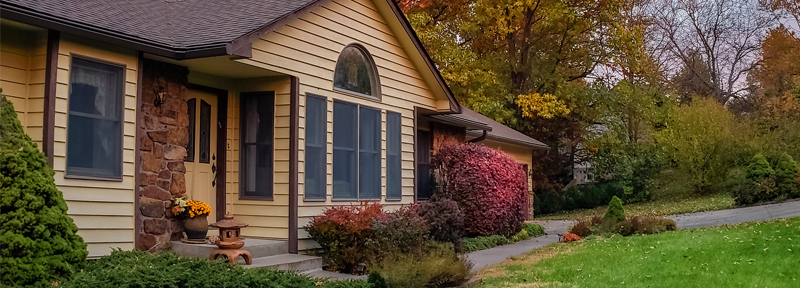
Replacing or upgrading your HVAC system is an important decision to make. Efficiency is always a top priority, especially since HVAC usage accounts for about 48% (on average) of a home’s energy consumption. The decision often leans heavily on location since climate frequently dictates what is practical for a home. Central furnaces remain the most prevalent heating option across all regions in the U.S. residential market, with gas and electricity used as the primary types of fuel. Heat pumps have grown in popularity in southern areas due to the milder climates but are typically not suitable further north.
AC & Furnace Split System
This type of split system utilizes a central air conditioner and an electric, propane, natural gas, or fuel oil furnace. The furnace produces heat in the winter, distributing it throughout the entire home, while the air conditioner draws out heat during the summer and transfers it outdoors.
An AC and furnace split system is a popular solution that combines the heating capabilities of a furnace with the cooling capacity of an air conditioner. This HVAC combination allows the homeowner to control their heating and cooling from a single thermostat, saving both energy and money.
Dual-Fuel HVAC System
A dual-fuel system uses a furnace alongside an air source heat pump. A heat pump is able to both heat and cool down your home, providing comfort in all seasons. It keeps your home heated in the winter with heat transfer technology and removes hot air from inside the home during the summer to maintain a cool interior.
Heat pumps can heat your home most efficiently when the outdoor temperature ranges between 25 °F – 60 °F. Due to the nature of the Midwest, there are times during the winter when freezing temperatures reach well below 25 °F, and a heat pump on its own will not provide the necessary heat. This is when a backup furnace will come into play and take over to provide the heat needed to keep your home comfortable and warm.
Mini-Split Heat Pump System
These systems are ideal for homes that do not have ductwork and may be using older, more expensive heating solutions like fuel oil. They are also a good option for garages, bonus rooms, etc. Upfront installation costs are frequently higher than other systems but may be assisted with reduced energy costs and potential utility rebates.
Geothermal HP System
Geothermal systems work differently from a traditional furnace. The systems use pipes below the ground where circulating water is warmed in the winter and cooled during the summer. Since it is easier to gather heat below ground than it is to capture heat in freezing air or to release heat into summer air, geothermal systems are very energy efficient and environmentally friendly. However, these systems usually have a higher installation cost than other HVAC solutions.
Consider some of the following factors when choosing the right HVAC system for your home in the Midwest:
- Upfront costs to replace your system or to install in a new home
- Climate for both summer and winter
- Energy efficiency/long-term costs the cost payback
- How environmentally conscious you’d like to be
Put Money Back in Your Pocket
Did you know? The federal government offers a variety of tax credits to reduce the capital costs associated with implementing renewable energy and energy efficiency home projects.
If you live in the Midwest, keep track of rebates and incentives available in your area here.


